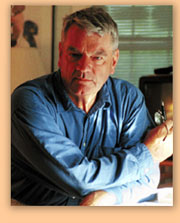22nd February
1970Dear Mr Duncan,
I SAID I would
write you a letter after the verdict and here it is. When
I said it, I had intended to write it the same day, or at
the latest on the day after; in the circumstances I hope
you will forgive me for delaying.
I am sure the result will have come as much
a surprise to you as to my wife and myself, for although
we had feared that [David] Hirst [QC,
Counsel for the Plaintiff Broome] might indeed
succeed in swaying a British jury by an emotional appeal,
and thereby marginally secure a victory, none of us had
expected a judgment of such magnitude against us. Mr
[Andrew] Pugh [Duncan's junior]
suggested, I recall, a payment-in of a few hundred
pounds. However, I am accepting the verdict
philosophically, and I am trying not to balk at the
injustice of an award of punitive damages with all that
it implies.
The real damage was done in my view by the
summing up on Tuesday morning. On Friday evening I was
naive enough to hope your oratory might have vwn the day
for us; on Monday at midday I put our chances at
fifty-fifty; on Monday evening, after the first part of
Mr. Justice Lawton's summing
up I put my chances at only one-in-five, and by the
time the Jury retired I knew there was no hope. So you
will see that unlike a wartime leader, I am not going to
blame my "generals" for the defeat; I must blame the
weakness of my own cause, and the resolution with which
it was attacked.
I have forced myself to believe that it
was best not to give evidence, although it was a
bitter pill for me to swallow when The Judge repeatedly
referred to this, as though I had something criminal to
hide. Altogether a most uncomfortable seventeen days, of
which the only two
(Personal)

